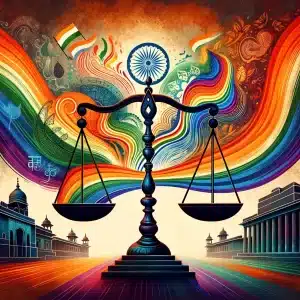Simplifying Your Life & Law | Legal Drafting services

Understanding the term adultery
Adultery has been derived from the Latin word ‘Adulterium’, meaning sex outside marriage. This offense is committed by a third person against the husband in respect of his wife. Section 497 of the Indian Penal Code punishes the offense of adultery committed with the married woman without the consent or connivance of her husband with rigorous imprisonment extending up to 5 years, or with a fine, or with both. The essential ingredients for this offense under section 497 are-
- Sexual intercourse by a man with a woman who is or whom he knows or has a reason to believe to be another man’s wife.
- Such sexual intercourse must be without the permission and connivance of the husband.
- Such sexual intercourse must not amount to rape.
- Adultery does not amount to rape.
In the case of adultery, the consent of the woman is immaterial which is the woman being married it is the husband who is the aggrieved party. In fact, in adultery woman is always a willing and consulting party to sexual intercourse. But the offense of rape was committed against the will and without consent of the women, or it may be committed even with the consent of the girl under 16 years of age. Adultery is an offense against the husband. Rape is an offense against the woman herself.
Adultery may be committed only in the case where the woman is married and not when she isn’t married. No offense of adultery is constituted where the husband consents to his wife having an illicit relationship. On the other hand, Rape may be committed on any woman whether married or unmarried. Where a woman is married and sexual intercourse is committed against her will, the offense is both rape as well as adultery.
The law of adultery in India
The offense of adultery is no longer a criminal offense but can still be taken as a ground for divorce in both Hindu and Muslim marriages. It was a criminal offense under chapter XX of IPC and was held unconstitutional by the apex court in 2018 because it treated the husband as the sole offender.
The problem
Under section 497, wife is not punishable as abettor because authors of the code assumed men to be more likely to be the seducer. But the reason given by the authors of the court for not punishing the wife has been criticized. A woman who abets adultery should be punished in the same way as a man is. Punishment for the same offense and letting the woman be scot-free is discriminatory and unexplainable. The consent or willingness of the woman holds no place in this section, and this gives certain women a chance to take advantage. In today’s transformed world, to assume that “man is the sole seducer” is irrational. In the cases where the woman is the equal partner, a violation of articles 14, 15, and 21 occurs in restricting the class of offenders to men.
The law changing petition –
Joseph shrine, an Indian businessman living in Italy, filed public interest litigation under Article 32 of the Constitution to the apex court challenging Section 497 of IPC read with Section 198(2) of the CrPC where it is specified that how a complaint has to be filed under sections 497 and 498 IPC. He argued on the point that the law only held men as the offender in extramarital relationships and women were left guilt-free. His petition stated that married women were in no way different than a married man for the purpose of prosecution. He also held that the law discriminated against women by holding a wrong assumption that they are men’s property. The 45 pages petition of Mr. Joseph shrines genders equality and rights of women from American poet Ralph Waldo Emerson, former UN Secretary-General Kofi Annan, and women rights activist Mary Wollstonecraft. The petitioner was opposed by India’s ruling party BJP while insisting that adultery should not be decriminalized. It was argued by the opposing party that the section supported the stability of marriages.
Judgment-
After hearing the arguments, a five-judge Constitution bench of the apex court ruled to scrap Section 497 and decriminalize it. Chief Justice Dipak Misra held that although adultery cannot be a criminal offense but could serve as a ground of divorce for civil issues. It was held by the Supreme Court that both the partners in a marriage have equal responsibilities. Judge Rohinton Nariman held that the ancient notion of women being the victim and men being perpetrators were no longer good in the transformed society. Justice DY Chandrachud laid down that the law sought to control the sexuality of a woman and thus attacks her dignity.
You may also like to read:
-
18 Jun 2021 Know Your LawDomestic violence in India
-
14 Jul 2021 Know Your LawDifferences between plea bargaining and compounding of offenses
-
08 Sep 2021 Know Your LawGrounds to defend on the cases of 498A
-
26 Jul 2021 Know Your LawHomosexuality, Section 377 of IPC
-
23 Aug 2021 Know Your LawAdultery
-
10 Jul 2021 Know Your LawCulpable Homicide and Murder






